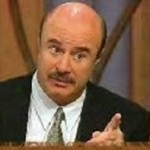A number of years back, a Fortune 500 company shut-down one of its plants in rural Mississippi. After months in the company’s Career Center preparing candidates for a new work life, in a restaurant at the ‘farewell’ party on our final day, I witnessed an unknown person approach our conversation group.
The stranger’s stature and demeanor was noticeably prominent as she tapped the shoulder of one of the candidates with whom I was chatting. Conversation abruptly stopped and this is what I heard. “Debi, you probably don’t remember me, but a few months ago I interviewed you for a position at the XYZ plant. I remember you, Debi, because you are the first and only ‘thank-you’ note I’ve ever received in my rise to Plant Manager and my 11 years in that position. Sorry I couldn’t hire you then, but I hope you’ll give us another shot.” Then, she turned and left the party room.
True story, except Debi’s name.
Thank you notes in job-search are more common today, but are still so much more powerful than the credit they’re given. Here are some tips for maximizing the effect of the simple “Thank-You”note.

...you better listen!
- Simple is crucial here. A short (one note-page max) hand-written note of two-three paragraphs.
- Timing is vital here. Hand-deliver it back to the company same day to be put on the interviewer(s’) desk(s). Yes, carry your thank-you notes in the cab of your vehicle, after an interview drive into a close parking lot, write your note and deliver it back. You don’t have to ask for the interviewer, leave it with a receptionist or guard and verbally thank them to see that it gets to the interviewer at their earliest convenience.
- Yes, yes, email is the next best thing, BUT instead of keyboarded emails…how about handwriting the real thing, scanning it into your computer, and emailing it as the text of the email or an attachment or both. Then, snail mail the original for double impact.
- First paragraph: 2-3 sentences…say thank you for time and opportunity and show enthusiasm for the possibility of working there.
- Last paragraph: articulately answer this question, “Why should you hire me?” Dovetail your solutions to their needs
and especially include a ‘need’ for which you have a personal strength to solve that actually was revealed during the interview.
- Middle paragraph (optional): cognizant of the interviewer’s body-language, if you perceived any part of the interview did not go well (and you did not clarify it on the spot) this is your chance to undo a negative. “This afternoon, you asked me xxxx and I don’t think my response was adequate…so, here’s my clarified response. Or, “this morning, I forgot to tell you that….”
- If yours was a panel interview, everyone gets their own hand-written thank you note.
-
Your networking contacts deserve thank you notes, too…hand written is most powerful, but keyboarded is OK. Frankly, you can do mountains of goodwill by writing everyone who helped you…TWICE. Write them the first time within 48 hours of their help and the second time about 3 months after you’ve landed your new position then say, “Remember, a few months ago I asked your advice on such and such. Well, here’s how it turned out and you were a big part of that, “thank you.”

One Trackback
[…] ~Remember It’s Not Over Till It’s Over: Write a follow-up note when you don’t get the job. This is so unusual that you’ll stand out, and perhaps the interviewer will know of other opportunities and recommend you. Don’t be afraid to ask that question in the note. This is NOT the “thank you” note following an interview. […]